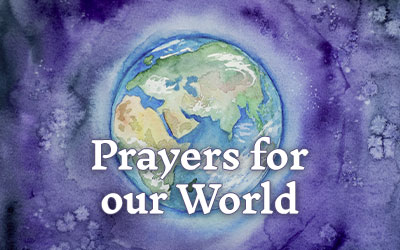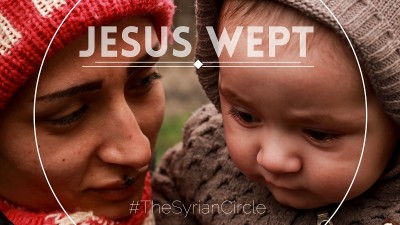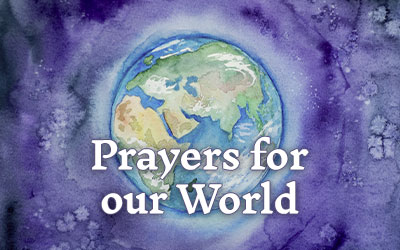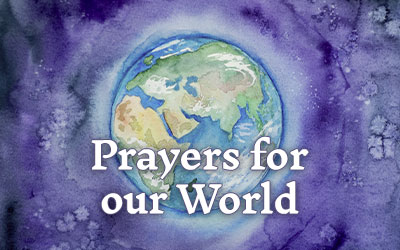MAY 29, 2016 4:28 PM BY ROBERT SPENCER
“The Islamic State’s recent defeats on the battlefield signal that its once-vaunted militia army has been hobbled by worsening money problems, desertions and a dwindling pool of fighters, analysts and monitoring groups say….’These issues suggest that as an entity that is determined to hold onto territory, the Islamic State is not sustainable,’ said Jacob Shapiro, an expert on the Islamic State who teaches politics at Princeton University.” — Washington Post, February 6, 2016
The WaPo was by no means the first to pronounce the Islamic State in imminent danger of death. The Atlantic announced in January 2015: “ISIS Is Losing Its Greatest Weapon: Momentum: Evidence suggests that the Islamic State’s power has been declining for months.”
A CNN headline asked in November 2014: “Has ISIS peaked? Terror group suffers setbacks in Iraq.”
CNN followed a few weeks later with “For ISIS, tough times as it seeks to regroup.”
The New York Times announced on February 4, 2015, that “ISIS Is Losing in Iraq.”
On April 15, 2015, Vox issued its own report: “ISIS is losing.”
“Isil launches Syria assault, achieving biggest advance along Turkish border for two years,” by Louisa Loveluck, Telegraph, May 29, 2016:
Thousands of civilians fled an Isil offensive on Sunday as the terrorist movement achieved its most significant advance along the Turkish border for two years.
The three-pronged attack threatened to overrun the last swathe of territory in eastern Aleppo province held by non-jihadist rebels. The Syrian Observatory for Human Rights, a monitoring group, said at least 6,000 people had sought safety in Kurdish-controlled territory to the west.
Others joined the burgeoning number of civilians camped along the Syrian side of Turkey’s now closed border. As many as 165,000 displaced people may now be scattered in fields and informal settlements along the frontier, as well as in the nearby town of Azaz.
Although Turkey says it has an open-door policy for Syrians fleeing war, the border remains closed to all but the most severely injured, and Turkish police have shot refugees trying to cross illegally.
In clearing rebel forces from Azaz and the nearby town of Marea, the Islamic State of Iraq and the Levant (Isil) would strengthen its hold on a stretch of land along the Turkish border. Control of the area would allow the terrorists to threaten the Bab al-Salama border crossing, the strip of territory where thousands of civilians are now concentrated – and thousands more are expected to flee in the coming days.
Isil appears to be using its new territory to re-start its war against the Turkish state. After a two week lull, Isil launched fired more projectiles at Kilis, a Turkish border town where refugees and local residents now live in fear of the group’s rockets.
Marea has long been a bastion of relatively moderate rebel forces fighting to topple President Bashar al-Assad. During almost six years of war, the town has survived regime tank and air assaults and the effects of Isil’s chemical weapons.
But the terrorists finally entered the town on Friday, surrounding its hospital for ten hours before being pushed back. “We are very scared inside this hospital. We know Isil is coming back,” said one member of the medical staff, asking for his name to be withheld. Hours later, Isil gunmen did return – and the fighting continued as night fell….”
www.jihadwatch.org
Pray that the coalition forces would be given wisdom and resolve to overcome ISIS and put them to flight. Pray that they will be thrown into confusion, disunity and give up their jihadist ambitions and that their defeat will cause other radical Islamic groups to lose heart around the world. May many of these wrong-headed, deceived jihadists come to know Jesus Christ and turn 180 degrees around to become mighty missionaries for Him!
If you are burdened for the ongoing war and humanitarian crisis in Syria, you can subscribe to this excellent daily email prayer guide at: This email address is being protected from spambots. You need JavaScript enabled to view it.
“On a dreary, cloud-covered day in Serbia the sorrow of the refugee crisis was personified in three women who stood together, telling their stories with tear-streaked faces and children who silently clung to their legs. The women wept from exhaustion, frustration, and a crushing fear as others looked on and walked past without a word. Why do we not weep in the face of such sorrow? How can we turn our backs on these stories? Sometimes the best way to love someone is to stand by and weep with them?
“When does this stop being a refugee issue and start becoming a human issue?” -A volunteer with CYCI (a group working to find and aid Yazidi Christian refugees)
“Jesus wept.” -John 11:35
PRAYER POINTS
Pray for empathy and action to well up in the church worldwide. Pray for those on the frontline caring for people -- that they would stay strong. Pray for our hearts to continue to be soft to Jesus and His heart for refugees.
A CHORUS OF VOICES The same words, phrases, and sentiments are being spoken throughout Europe’s refugee route in a chorus of voices. Will we listen? THE NEED: “We are in need. We want peace and a hope and a future.”-Syrian refugee THE URGENCY: “The time is now. God is sending all these people into Europe and the Church must respond.” -Macedonian pastor THE OPPORTUNITY: “We are shocked. Muslim people are asking us about Jesus and how to know Him. They are asking for Bibles and for prayer.” -Christian aid worker in Greece THE RESPONSE: “We need people to come, serve, listen and care and give out of whatever they can do. We desperately need Arabic speaking Christians to come help us.” -Missionary in Germany
“The harvest is plentiful, but the workers are few. Ask the Lord of the harvest, therefore, to send out workers into his harvest field.”
~Luke 10:2
Pray for God’s glory to be known among refugees throughout Europe and beyond. Pray for breakthrough in “stuck” areas – the processing of people, this humanitarian response. Cry out for the entire generation of children growing up without education. Pray for Christian leaders in domains of society to make a difference through policy, management, and practical care.
God is stirring hearts with the hunger to know Him in this one of the most unreached nations in the world. Thanks for praying for the Cappadocia United Prayer Movement event, May 18-21. It was a wonderful time for local Turkish believers along with expatriates working in the country and intercessors from outside Turkey to pray for His breakthrough together. Here is a report from the organizers with some follow-on prayer concerns:
- We thank God that we could see His powerful work moving in His people in Turkey through the 2016 Turkey Outreach and Cappadocia United Prayer Movement
- We thank God that over 500 intercessors gathered together to unite in prayer for the spiritual breakthrough and great revival of the Turkish Church.
- We thank God that all the participants of English Camp, including teachers, children, youths, and their parents, experienced God’s grace during the Cappadocia United Prayer Movement.
For Our United Prayer for the King’s Return
That the Gospel would be proclaimed to the ends of the earth and all nations and all peoples would return to the Lord through our united prayers
For Deliverance of Middle East Refugees
That God will break into the lives of Middle East refugees with the brilliance of His love and mercy, and that with each step God will turn this dark road into the pathway to provision, with a growing sense of His loving presence
For Christian Leaders in Turkish Society
That many Christian leaders in a variety of social realms such as politics, justice, and religion will be prepared for an upcoming great spiritual revival, in which they will carry out and deliver God's glory to the next generation
For Church Planting in All 81 Provinces of Turkey
- That churches would be planted in all 81 provinces of Turkey, so that they may incubate many seekers and baptize believers
- Pray that legal seminaries and bible schools would be built in Turkey, so that the next generation of spiritual leaders could be trained
- Pray that Protestant churches in Turkey would gain official status as “civil organizations” from local governments, so that the platform for advancing witnesses for Christ in Turkey will be strengthened
- Pray that Salih, who received gospel through David Byle in prison, will continue to grow in his faith and live as God’s messenger in prison, and that God would make David Byle’s court cases known to Turkish Embassies, Consulates and to sympathetic politicians who are interested in protecting religious freedom
- Pray that Radio Shema in Ankara would be protected by God’s supernatural hands, and Christian workers at Radio Shema would be strengthened in their faith and hope, to keep up the hard work of spreading the gospel in the Black Sea region
- God’s truth and glory are revealed in Turkey, the Turkic window, and the Islamic world so that they may see spiritual restoration and revival
- Help Muslims in Turkey and the Middle East open their hearts toward the gospel, and may their hearts become good soil to produce good crops
- May the spirits of Islam that twist the gospel - "spirit of lies, confusion, fear, and dissension" - be gone
This email address is being protected from spambots. You need JavaScript enabled to view it.
“John Brennan, current head of the CIA converted to Islam while stationed in Saudi Arabia.
Obama's top adviser, Valerie Jarrett, is a Muslim who was born in Iran where her parents still live.
Hillary Clinton's top adviser, Huma Abedin is a Muslim, whose mother and brother are still involved in the now outlawed Muslim Brotherhood in Egypt!
Assistant Secretary for Policy Development for Homeland Security, Arif Aikhan, is a Muslim .
Homeland Security Adviser, Mohammed Elibiary, is a Muslim.
Obama adviser and founder of the Muslim Public Affairs Council, Salam al-Marayati, is a Muslim.
Obama's Sharia Czar, Imam Mohamed Magid, of the Islamic Society of North America is a Muslim.
Advisory Council on Faith-Based Neighborhood Partnerships, Eboo Patel, is a Muslim .
Nancy Pelosi (Democrat minority leaders in the US House of Representatives) announced she will appoint Rep Andre Carson, D-Ind, a Muslim, as the first Muslim lawmaker on the House of Representatives Permanent Select Committee on Intelligence, of all things! It would make Carson the first Muslim to serve on the committee that receives intelligence on the threat of Islamic militants in the Middle East! He has he suggested that U.S. schools should be modeled after Islamic madrassahs, where education is based on the Quran!!!”
(From a report sent by a concerned prayer leader from abroad)
Some also think that Barack Hussein Obama is a closet Muslim himself… in Audacity of Hope (written by David Plouffe, his one-time speech writer) Obama states, ‘If things get UGLY, I will come down on the side of the Muslims.’
Let’s pray for God’s protection over the USA and other nations from being undermined from within by those who have sympathies with radical Islam. Within Islam, it is OK to lie in the cause of Allah. Pray that citizens and government officials will be discerning, wake up and resist any covert Islamic attempts to take over either governmentally, educationally or culturally.
Six Ways to Pray for Our Nation
1. PRAISE THE LORD THAT HIS SOVEREIGN GOODNESS IS AS TRUE TODAY AS EVER.
“Give thanks to the Lord, for He is good, for His steadfast love endures forever.” (Psalm 136:1)
Remember: This world ultimately belongs to God, who created all things and Who, in Christ, is restoring all things. This remains true now and forever.
2. REPENT OF SIN, AND THANK GOD FOR HIS PROMISED FORGIVENESS.
Therefore you have no excuse, O man, every one of you who judges. For in passing judgment on another you condemn yourself, because you, the judge, practice the very same things. We know that the judgment of God rightly falls on those who practice such things. Do you suppose, O man—you who judge those who practice such things and yet do them yourself—that you will escape the judgment of God? Or do you presume on the riches of his kindness and forbearance and patience, not knowing that God’s kindness is meant to lead you to repentance? (Romans 2:1-4)
Remember: The Christian worldview teaches that all have sinned, and that we are welcomed by God through repentance. Nehemiah began his work in the world with repentance. So ought we.
3. PRAY FOR OUR CURRENT GOVERNMENT LEADERS TO FIGHT EVIL AND STAND UP FOR TRUTH.
First of all, then, I urge that supplications, prayers, intercessions, and thanksgivings be made for all people, for kings and all who are in high positions, that we may lead a peaceful and quiet life, godly and dignified in every way. This is good, and it is pleasing in the sight of God our Savior, who desires all people to be saved and to come to the knowledge of the truth. (I Timothy 2:1-4)
Remember: There is no place where God is not at work, including in Nero’s household. God honors nations who honor Him.
4. PRAY THAT TRUTH AND JUSTICE WOULD PREVAIL OVER “POLITICAL CORRECTNESS” AND “TOLERANCE,” BOTH IN OUR OWN LIVES AND IN OUR CULTURE.
O LORD, who shall sojourn in your tent? Who shall dwell on your holy hill? He who walks blamelessly and does what is right and speaks truth in his heart; who does not slander with his tongue and does no evil to his neighbor, nor takes up a reproach against his friend; in whose eyes a vile person is despised, but who honors those who fear the LORD; who swears to his own hurt and does not change; who does not put out his money at interest and does not take a bribe against the innocent. He who does these things shall never be moved. (Psalm 15)
Remember: Right and wrong do not change according to cultural fashions, nor does legality alter morality.
5. PRAY FOR THE UPCOMING ELECTION SEASON, THAT GOD WILL SHOW US MERCY AND NOT GIVE US WHAT WE DESERVE.
“Blessed be the name of God forever and ever, to whom belong wisdom and might. He changes times and seasons; he removes kings and sets up kings; he gives wisdom to the wise and knowledge to those who have understanding; he reveals deep and hidden things; he knows what is in the darkness, and the light dwells with him.
To you, O God of my fathers, I give thanks and praise, for you have given me wisdom and might, and have now made known to me what we asked of you, for you have made known to us the king’s matter.” (Daniel 2:20-23)
Remember: God ultimately orchestrates human history and uses whom He will to accomplish His purposes.
6. PRAY THAT GOD UNITES HIS PEOPLE, USING THEM TO BRING RESTORATION IN THIS BROKEN CULTURE.
From now on, therefore, we regard no one according to the flesh. Even though we once regarded Christ according to the flesh, we regard him thus no longer. Therefore, if anyone is in Christ, he is a new creation. The old has passed away; behold, the new has come. All this is from God, who through Christ reconciled us to himself and gave us the ministry of reconciliation; that is, in Christ God was reconciling the world to himself, not counting their trespasses against them, and entrusting to us the message of reconciliation. (2 Corinthians 5:16-19)
Remember: Those who have been reconciled to God have been put on mission as agents of reconciliation.
ColsonCenter.org
It was an honor and joy for me to serve as a speaker for the United Prayer Movement gathering in Cappadocia, Turkey a couple weeks ago. About 500 Turkish believers, Christian workers within the country, and intercessors from outside spent three days covering this nation in prayer, asking for His breakthrough. This is one of the most unreached nations on earth with about 5500 evangelical believers amidst about 100,000 from the traditional Orthodox and Catholic churches living in a sea of 80 million mainly Muslim people, most of whom have never heard the truth about Jesus Christ. Modern day Turkey is the location of Antioch and the seven churches of Revelation where the Apostle Paul and others established many of the first communities of Christians and then used them as bases to go further afield in sharing His Gospel to the nations. Now this nation needs to be re-evangelized. Even during the event and during travel to and from, I found myself with numerous opportunities to bear witness to the Lord of life to Turks and Kurds (a large minority population), all of whom seemed open and some of which were even hungry to hear about Him.
During my message to the brothers and sisters there, I urged them to think of themselves as “world changers”. In the midst of my own Jubilee year in the ministry, I told them that the most exciting thing on earth is to connect with God and become His instruments for the transformation of Turkey, the Middle East and our world. What a staggering thought that Christ in us, in spite of our obvious human frailty, can enable each of us to become a powerful instrument to impact to our community, nation and world! After 50 years, I am still thoroughly convinced that nothing compares to serving Jesus in the nations. What a high privilege!
There are four practices I shared with the conference participants through which colleagues and I have over and over again witnessed God’s mighty working to bring His transformation to cities and nations. They laughed when I offered to bet them 10 million Turkish lira that these practices would bring about breakthrough in Turkey if they would implement them!
- Confess and repent for sins of your ethnic group and nation
This is the principle of identificational confession and repentance in which individuals can represent their nation or people group as Nehemiah and Daniel did. This is also the principle of corporate solidarity as found when the high priest represented his people by going into the Holy of Holies to confess the sins of the twelve tribes. Daniel and Nehemiah confessed “we” have sinned. (Read Nehemiah 1 and Daniel 9) They were godly, sensitive men but identified with the corporate sins of their fathers and ancestors. Through the application of this practice God brought about the release of Nehemiah to go and build wall to save Judah from her enemies. The angel Gabriel was released to bring the end time vision to Daniel. Both of these experiences deeply affected the history of Israel.
In 61 national prayer initiatives over the last 25 years or so, colleagues and I have also witnessed many such releases that have brought unexpected breakthroughs at the political level-- the sudden end of wars through peace agreements, governments of national unity and the removal of evil rulers. At least eight wars and ethnic conflicts, six of them in Africa, that no one thought would ever end have been stopped this way, saving the lives of hundreds of thousands.
If we humbly confess and repent of our sins and those of our people, we will definitely get God’s attention. He is drawn to those who are humble and contrite in heart. The problem is that most people feel OK about their nation and culture, even believing that they are superior to others, and so are blinded and hindered by nationalistic pride. What a difference it would make if God’s people in each nation would identify the corporate sins of their nation and begin to confess those sins to God on behalf of their people!
What corporate sins do you observe in your own nation that are hindering God’s transformation? Are you willing to stand in the gap as a representative to confess them both privately and publicly so that His mercy may be released?
- Forgive and reconcile with all those who have offended you
Jesus commanded, “if you have something against your brother, go..” Before worship, get right with anyone you may have offended or who has offended you. Every one of those prayer initiatives that resulted in breakthroughs have been bathed in an atmosphere of prayer with the resulting manifest presence of God. In such an atmosphere, deeply moving times of asking for forgiveness by Christian leaders representing themselves and/or their institutions has followed. In the Democratic Republic of Congo in 2001, one man under profound conviction cried out to others across the room, “Brothers, please forgive me that I split from you 20 years ago.” That led to a few hours of many others getting reconcilied, and our whole facilitation team wept along with them.
In Sudan, in 2002, church leaders went on for some hours publicly confessing, then asking forgiveness between their denominations and organizations. Then, they cried out in real heart unity for a breakthrough in the peace negotiations and a ceasefire was signed by the officials at the same time they were shouting together! In Sri Lanka, in 2001, Sinhalese and Tamil leaders confessing and praying in each others’ arms after deep reconciliation received the assurance that history would be changed and sure enough the next morning’s headlines proclaimed that the reclusive Tamil Tiger rebel leader for the first time ever wanted peace talks with the government.
Are there any individuals, churches, people from another ethnic group you need to get right with? Do you need to ask forgiveness or extend it?
Satan is the diabolos or divider. His main strategy is to split people and nations and if possible foment destructive violence and war so that he can destroy people as efficiently as possible. His strategy is to divide Christians so they cannot pray unitedly against him and his agenda. The way to counter him is to live in continual reconciliation and forgiveness.
- Pray unitedly and authoritatively
The first two practices lead to this. Without humble confession and repentance, reconciling and forgiving, we cannot pray in the unity and authority that will for sure bring about God’s transformations.
United prayer is the way to see history changed. In 2 Chronicles 20, for example, King Jehoshaphat called everyone together, men, women and children to stand together in prayer and fasting. The three enemy armies coming against Judah were then thrown into confusion and defeated. Many other cases from Scripture could be noted. I am fond of quoting the theologian Walter Wink who said: “History belongs to the intercessors, who believe the future into being… These shapers of the future are the intercessors, who call out of the future the longed-for new present.
Jesus gives us absolutely staggering promises that are for us in a plural and united sense. Over and over again, He said “whatever… anything” you ask will be done (Matt. 18:18-20, John 14:13-14). When we pray with others in unity, getting on same wavelength with God and one another and listening with our hearts connected to His heart, we will see His amazing breakthroughs. I John 5:14-15, also written to a group of believers rather than to just an individual, tells us that when we pray like that, we will know how to pray according to His will and will also have the assurance that we will receive whatever we are asking.
Such prayer unity takes time and can’t be rushed. We have to build relationships and pray with one or more prayer partners over time. Do you have one or more prayer partners that you are regularly praying with?
We also need to use His authority that has been delegated to us as His children. It is inevitable when praying unitedly that we will threaten the prince of this world. He will backlash to try and stop us. That is one of the reasons that prayer meetings (the most powerful church gatherings for effecting macro transformation) are usually the least attended ones.
God gave dominion of the earth to humans (Gen 1:26). The devil is a usurper and deceiver. Through prayer, we can recover and use the authority the Lord wants us to have. Even children can use His authority as He taught in Luke 10:18-21. Tragically, many believers don’t ever use it. A converted witch once told a friend of mine that when she was practicing witchcraft she and her friends could see the power of God resting on Christians, but she and her companions were not afraid since the majority of those believers did not know how to use it!
Indonesia is the world’s largest Muslim-populated country. Much of Islam there is quite occult through trafficking with spirits. There are places and territories dedicated to evil spirits that historically have caused oppression and blindness to Gospel. For example, we heard that Suharto, the dictator-president of Indonesia in the 1990s drew spiritual power from a graveyard and also sought to protect himself by surrounding himself with 700 spirit mediums. However, he was overthrown as believers there with the support of others from abroad used Jesus’ authority to “tread on the serpents and scorpions and overcome all the power of the enemy”.
Indonesia now has perhaps the most powerful prayer movement on earth with many millions of believers involved; they have over 500 prayer towers and 24/7 teams; the country is now estimated to be 30% Christian. During the World Prayer Assembly that was held there in 2012, almost 400 cities and 2.5 million believers joined together in prayer through satellite TV and in the national stadium. 40 Muslim imams came to the Lord after the WPA through having the same dream! Over 200,000 trained child intercessors prayer-walk and close down places of corruption and immorality in various parts of the nation. The first Christian governor of Jakarta elected after the WPA has been cleaning up corruption and solving other problems, winning favor even in the eyes of the Muslim majority. This is the Lord and what He can do if we will take His promises seriously, praying with His unity and authority for our own nation.
- Share the Gospel Boldly
Early Christians of Asia Minor (the present day Turkey) and especially the Apostle Paul, probably the greatest missionary who has ever lived, were bold in making Jesus Christ known. Indeed, they felt indebted to those who had not heard the Good News. They mainly were very simple, ordinary folks who used their marketplace connections as small merchants and artisans to spread the Gospel far and wide. The best opportunities to share with others come through such relationships of affinity, travel, etc. As we pray for “divine encounters” or engage in “prayer evangelism”, praying for neighbors, friends, family members and strangers, God will surely give such natural opportunities, preparing the hearts of those around us to hear and respond.
The simple believer, Ananias, heard God’s voice telling him to go to that fearsome persecutor of Christians, Saul. His obedience was used by God to launch the great apostle into a world mission, resulting in the spread of the Christian faith throughout the whole then-known world. Since the first century, prayer combined with the bold sharing of the truth of Jesus has been a powerful, transformational practice that has again and again profoundly changed communities and even whole nations. It is and will do so again in our own day.
For practical application:
1 Identify corporate sins, confess and repent of them on behalf of your ethnic group and nation.
2 Think of individual people, church or ethnic groups you need to get right with. Determine to go to them and ask forgiveness if you or your people have offended them, or if they have offended you.
3 Pray unitedly and authoritatively as He leads for specific things you want to see changed in your community and nation.
4 Pray for your neighbors, friends, cities and towns, and for His boldness to share the Gospel as He gives opportunity.
John Robb, IPC Chairman
USA: ‘spiritual awakening’ in West Virginia
27 May 2016A spiritual awakening that has led to an estimated three thousand conversions and appears poised to last through the summer is creating continuing enthusiasm among Assemblies of God churches in southern West Virginia. ‘The past six weeks our Sunday morning services have been more spiritual. The move of the Spirit has gone up two or three notches’, said the leader of Victory Christian Centre Church in Lenore. Pentecostal evangelist Matt Hartley has been holding revival meetings which have attracted visitors from Texas, South Carolina, Massachusetts, Georgia and Florida. After other meetings in different venues, on 14 May the ‘Awakening’ shifted to Logan High School's football stadium. ‘Young people want to be involved in Bible study, some pastors and youth groups have travelled hours to get there,’ said the director of youth and Christian education for the AoG Appalachian Ministry Network. ‘This has had some pretty far-reaching results, especially for youth ministries.’
USA: ‘spiritual outpouring’ on west coast
27 May 2016Last month a San Diego church posted online, ‘In the midst of outpouring and extended revival, we feel that it's time to be intentional with releasing impartation each month through hosting special themed weekends of revival. We will be bringing together fathers and mothers with a history in outpouring and revival to begin to spread what God is releasing here in this “Fire and Glory Outpouring” in San Diego to the whole of North America and the Nations. Come and be a part of this special time of impartation and activation, in the midst of nonstop revival which has been going on for over two and a half months! Fresh Awakening San Diego is exploding!!!’ ‘Incredible Glory Presence’ is just one of many Facebook messages about the outpouring, at







